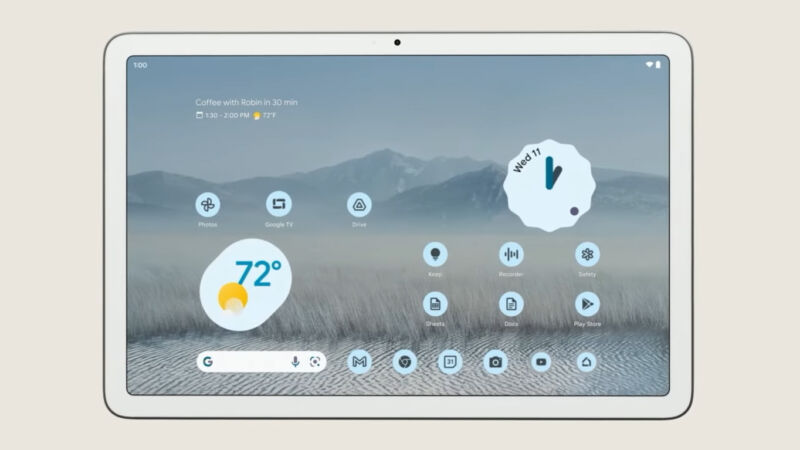
Android 13 hit AOSP the other day, and included in the code source dump is an interesting commit spotted by Esper's Mishaal Rahman. It sounds like Google is planning to—or at least experimenting with—moving the upcoming Pixel tablet to a 64-bit-only build of Android. The commit doesn't beat around the bush, saying: "Move tangor to 64-bit only." "Tangor" is the codename for the already-announced Pixel tablet.
iOS, with its single hardware manufacturer, has been 64-bit only since 2017. Android has a million moving parts split across a bunch of different companies, so getting to 64-bit only is going to be a long road. Getting there is worth the effort, though, with a promise of increased performance and additional security features.
The Google Play app ecosystem is probably furthest along in supporting 64 bit. Any apps written entirely in Java or Kotlin already get automatic 64-bit compatibility from the system. Google mandated that Google Play apps using native code (usually these are games) needed to provide 64-bit versions back in 2019. There were exceptions for a few popular SDKs like Adobe Air and Unity, but these exceptions were ended in August 2021, when all apps were required to have 64-bit versions.
As for hardware, every SoC should support 64-bit by now, and some flagship Android SoCs are actually reducing their ability to run 32-bit code. Any flagship chip following the recommended ARM design only supports 32-bit processing on three of the eight cores—the other five are 64-bit only. ARM wants to drop 32-bit support entirely from its 2023 flagship SoC design, but there are already rumors stating that Qualcomm doesn't want to follow that recommended design. The most likely reason is because of China.
Google's 64-bit app requirements apply only to apps in Google Play, which doesn't exist in China. China has a big collection of competing app stores with more lax policies, so 32-bit apps have not been phased out as aggressively. China is working on this issue, though, with the top-five Chinese app stores—from Alibaba, Baidu, OPPO, Tencent, and Xiaomi—agreeing to ban 32-bit-only apps by the end of this month. There's also the issue of 64-bit compatibility among packed-in apps from OEM skins, which app store rules don't apply to.
Rahman found another commit that suggests 64-bit-only support might be a regular feature of 2023's Android 14, so the Pixel tablet, which is already officially confirmed for next year, is looking like a test run to see how everything goes.
reader comments
81